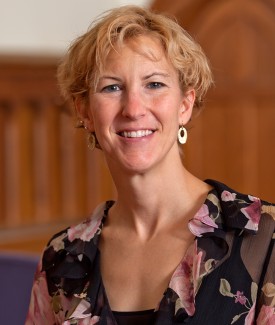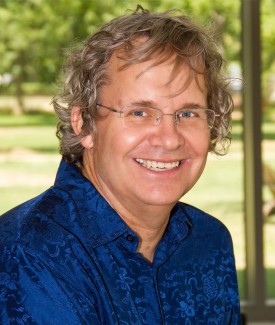Full Professors
From Kenyon News - November 7, 2019
During its October meeting, the Academic Affairs Committee of the Kenyon College Board of Trustees approved the promotions of three faculty members to the rank of full professor.
Promotions as of July 1, 2020, include:

Sheryl Hemkin, Associate Provost
B.A. University of Chicago; M.S. University of Illinois at Chicago;
Ph.D. Purdue University
Sheryl Hemkin, a physical chemist, joined Kenyon’s faculty in 2003 after working at Swarthmore College. She was promoted to associate professor of chemistry in 2009 and began serving as associate provost in 2019. Her research focuses on the chemistry behind cyclical biological processes in plants and animals, such as sleep cycles, heartbeats and brain functions.
Over the course of Hemkin’s career at Kenyon, she has served as chair of the Department of Chemistry, as co-director of the Neuroscience Program and as co-director of the Biochemistry and Molecular Sciences Program. She also served as a member of the presidential search committee that selected President Sean Decatur in 2013. As associate provost, she serves as a liaison to academic departments, programs and committees; assists with faculty recruitment and hiring; and advises the provost on the development and administration of academic policies, among other duties. She also serves as a member of Senior Staff to advise Decatur.

Jennifer Johnson, Associate Professor of Sociology
B.S. Georgetown University; M.A. and Ph.D. University of Chicago
Jennifer Johnson joined Kenyon in 2005. Her research explores how and under what conditions ordinary citizens take the law into their own hands or administer justice informally, and what this says about changing understandings of citizenship. As a graduate student and Fulbright scholar, she studied extralegal justice movements in rural southern Mexico, returning to indigenous communities she had become familiar with before graduate school as an international development worker based in Washington, D.C., and Mexico. Portions of her dissertation have been published by Russell Sage Foundation and Routledge presses, and they appear in a Spanish-language anthology she co-edited with U.S. and Mexican scholars.
Currently, with support from the University of California, Berkeley’s Center for Right-Wing Studies, where she is an affiliated scholar, Johnson is writing a book about women’s participation in the Minuteman vigilante movement at the U.S.-Mexico border (forthcoming, University of Texas Press). Trained as an urban ethnographer in the Chicago School tradition, she has also begun fieldwork in Mexico City through a GLCA- funded research collaboration. This research, examining how residents in diverse neighborhoods respond to insecurity, was published in “Mapping the Megalopolis: Order & Disorder in Mexico City” (2018, Lexington Press).
At Kenyon, Johnson teaches and mentors in the International Studies, Latino/a Studies and Law & Society programs. She takes students to the U.S.–Mexico border as part of her “Borders and Border Crossings” course and is passionate about experiential teaching and learning opportunities of all kinds, especially those that engage students globally.

Steve Van Holde, R. Todd Ruppert Associate Professor of International Studies and Political Science
B.A. Swarthmore College; M.A. and Ph.D. Cornell University
Stephen E. Van Holde joined Kenyon in 1990. In the Department of Political Science, he teaches courses in environmental politics, comparative politics, international relations and the politics of science.
Van Holde is, with Lars Mjoset of the University of Oslo, co-editor of “The Comparative Study of Conscription in the Armed Forces” and currently is completing a book on the social, political and environmental impacts of consumerism and consumption in China and around the world. He also has written more widely in the fields of environmental politics and science and politics, authoring papers on topics such as the science and politics of AIDS in Sub-Saharan Africa.
Van Holde has contributed substantially to the International Studies Program and the Environmental Studies Program, serving on both their committees and, since 2016, as the director of international studies. In addition, he has taught in the Integrated Program in Humane Studies (IPHS). He has served the College as a member of Campus Senate, the chair of the Curricular Policy Committee and the committee that designed the Environmental Studies Program.